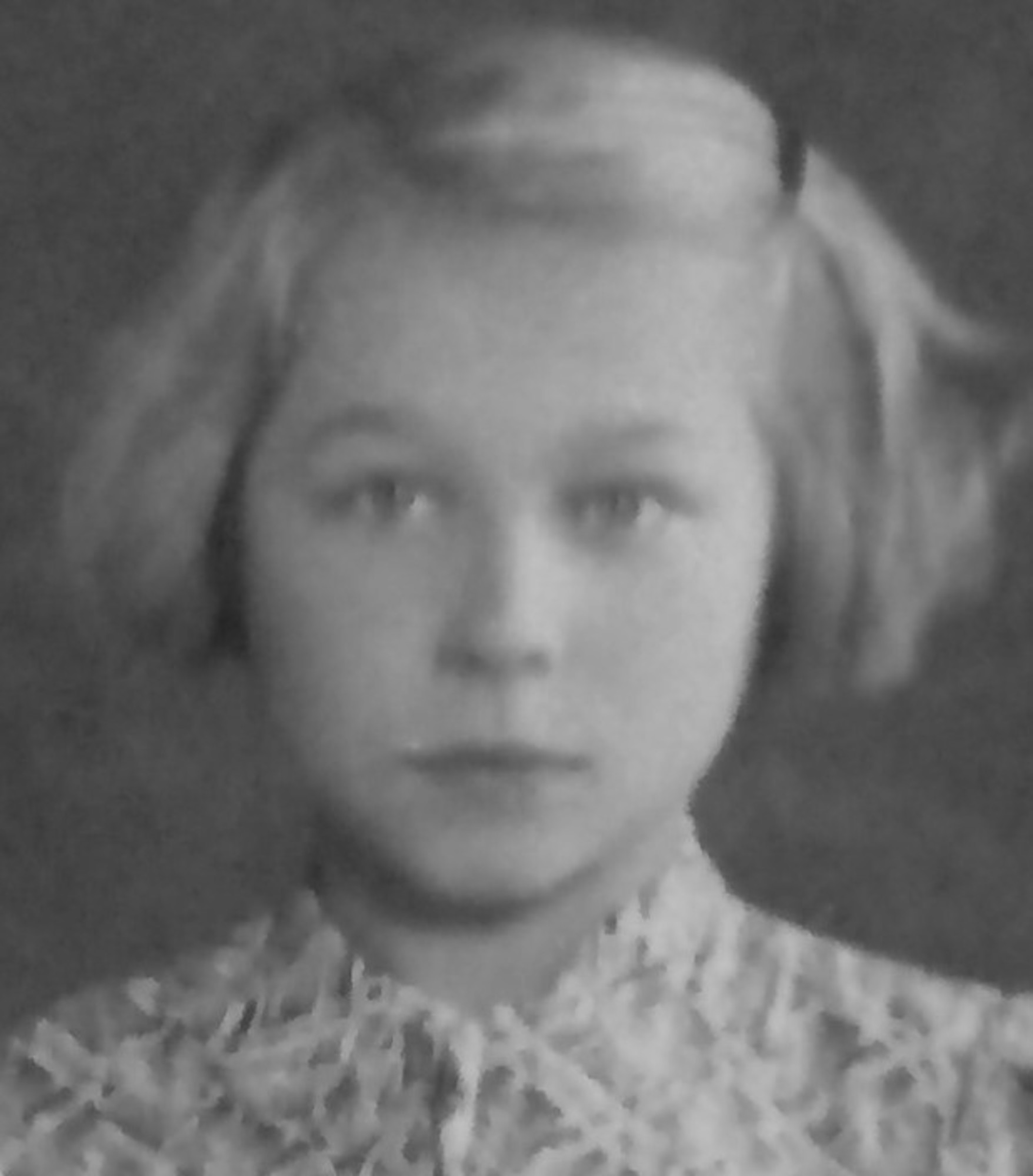Children, don‘t let them surprise you in your sleep. Forget the bad stuff.

Stáhnout obrázek
Eva Zubková, née Hlavatá, was born on 13 October 1933 in Prague, where her whole family lived. Her father worked in the factory of ing. Janeček. Her mother was a housewife. She had three older brothers and one younger sister. During the Heydrichiad, the family moved to Háje outside Prague (now part of Prague), where they lived in a small house with a garden. In July 1942, her father Antonín Hlavatý was arrested - Eva was less than 9 years old at the time. Since the arrest, the family had not seen dad again because political prisoners were not allowed to visit. Only from a colleague of her grandfather, who worked on the railroad, did the family learn that the father had been taken by the Germans from Prague by train to Auschwitz. The family only learned of their father‘s death from a death certificate brought to them by a gendarme. According to it, dad died of pneumonia in Auschwitz. In addition to dad, the older brother Ladislav, who was 17 years old at the time, was also arrested. He was taken to the Petschek Palace, where the Gestapo was based. After two days he was released - his teeth were knocked out during interrogation. After the arrest of the father, the family did not have it easy, they lost the breadwinner. That‘s why dad‘s friends from the resistance helped them. They secretly gave them money or food in their backpacks. Eva remembers Gestapo visits after dad‘s arrest - most often at night they came to search their belongings. Eva‘s grandfather was also arrested because he was secretly listening to radio broadcasts from London. He would then tell the news on the street - where the Russians were already and where the Americans were. One of those people turned him in. When they came to arrest him, little Eva was visiting her grandfather and grandmother. He was sent to work in the Polish salt mines. After the war, he came home, but he died a few months later because his feet were burned while mining salt in Poland and it couldn‘t be cured. The witness also experienced the liberation of Prague - how the barricades were built, the firefights and the shelter from the bombing. After the war, she studied at a factory labor school with a focus on health care and then worked as a nurse for a dentist in Karlovy Vary. She married in 1954 and had a daughter. When her daughter was a year old, her husband died of leukemia. She was living in Carlsbad at the time of the interview.








